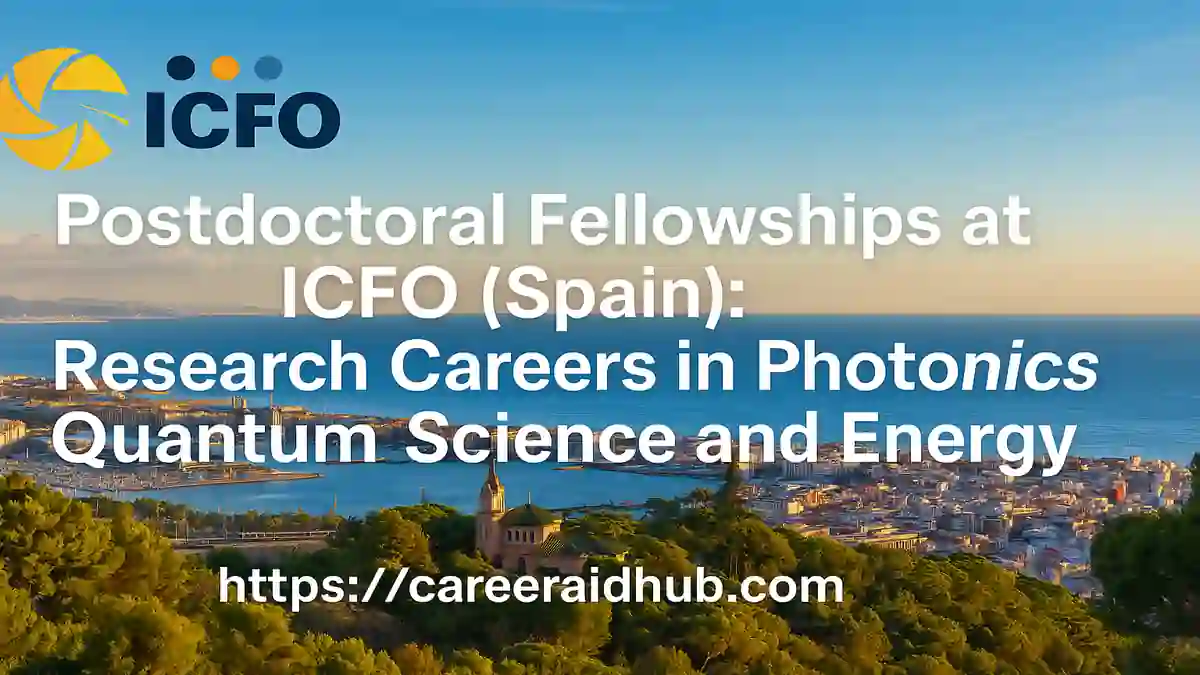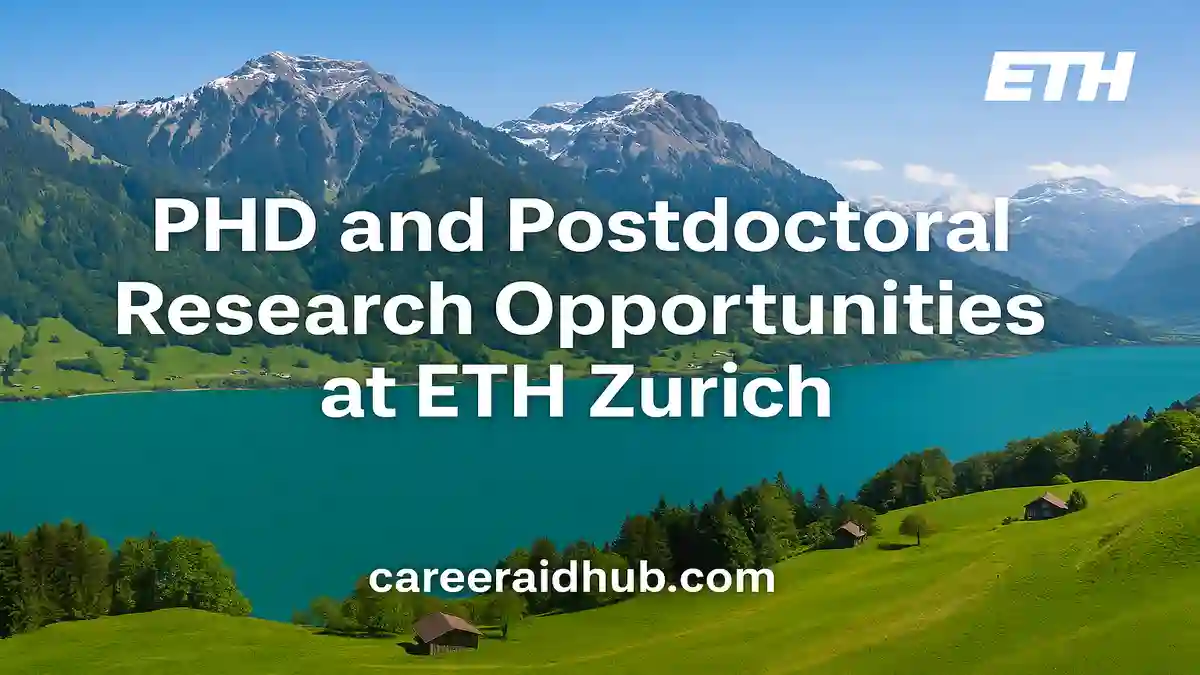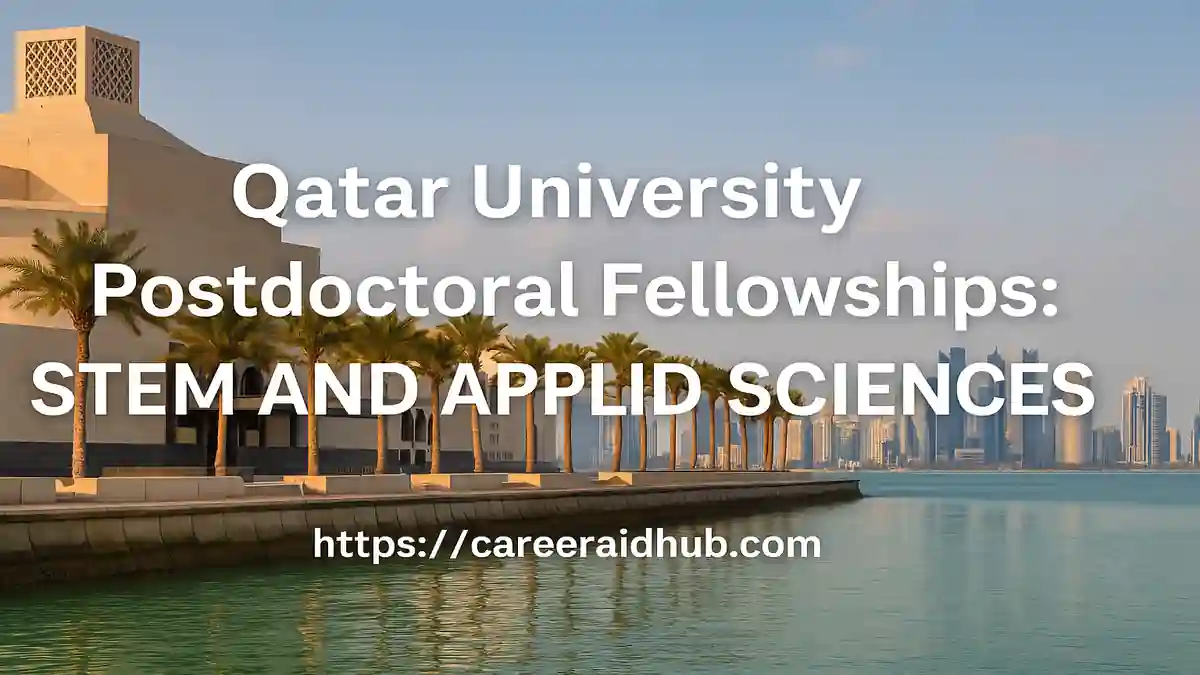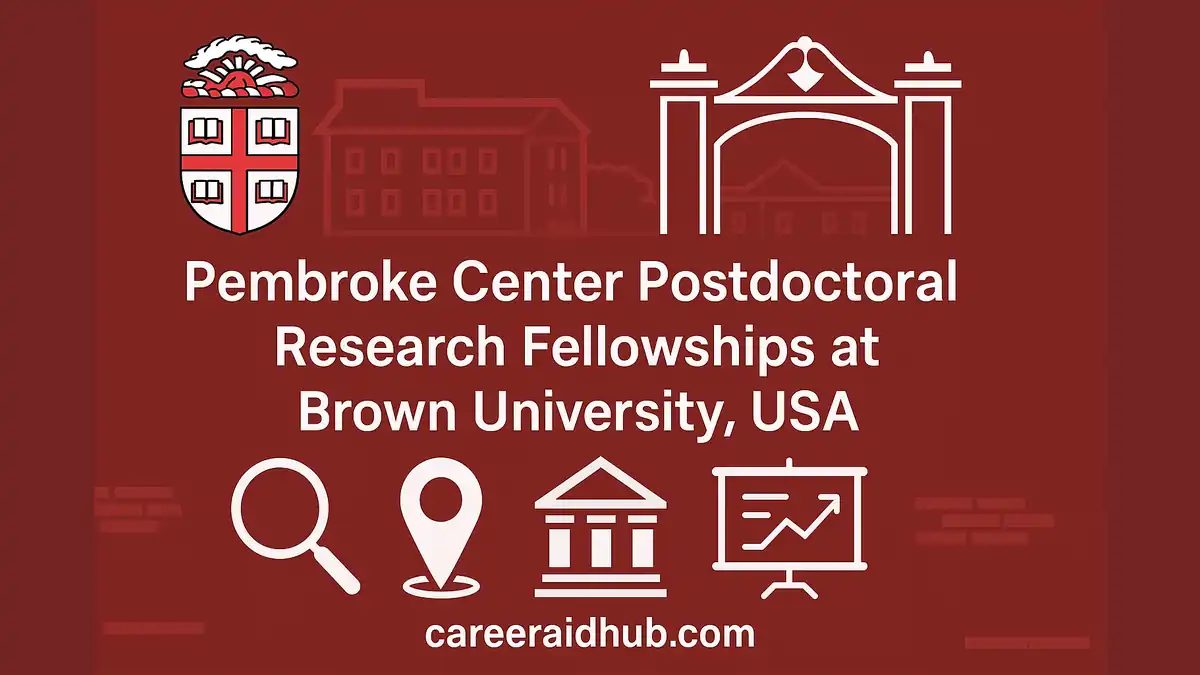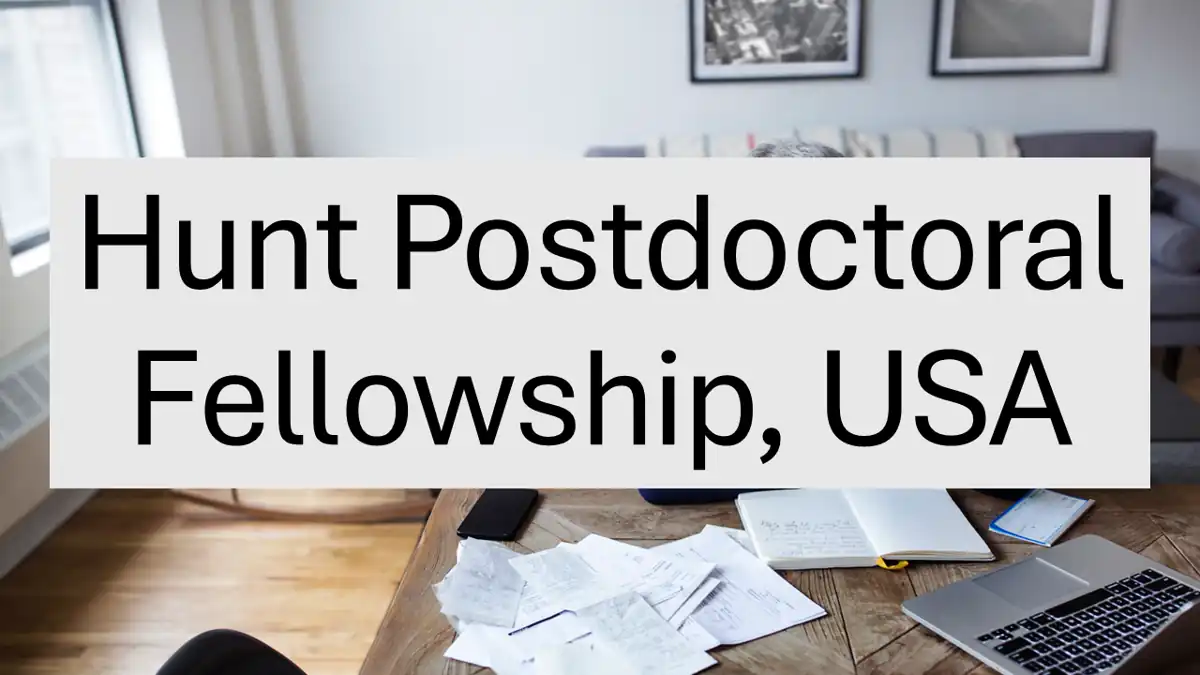If you are a recent or early-career PhD graduate searching for a high-impact ICFO postdoctoral fellowship in photonics, quantum technologies, energy, or biophotonics, ICFO – The Institute of Photonic Sciences in Castelldefels (Barcelona, Spain) is a compelling destination. It is an internationally recognised centre of excellence, with hundreds of researchers distributed across multiple groups working on both fundamental and applied photonics.
ICFO postdoctoral fellowships offer motivated early-career PhD researchers a chance to join a leading photonics institute near Barcelona, access cutting-edge laboratories, receive close mentoring, and lead interdisciplinary projects in quantum science, nanophotonics, sustainable energy and biophotonics, all within a vibrant, collaborative ecosystem that strongly supports long-term international research careers.
Why Choose a Postdoctoral Fellowship at ICFO?
ICFO’s mission is to push the frontiers of photonics and to harness light-based technologies to tackle critical challenges in information processing, sustainable energy, healthcare, advanced materials, and related fields. This mission gives the institute a clear strategic direction, while still allowing significant flexibility for curiosity-driven research and exploratory projects.
Core Advantages of an ICFO Postdoc
A postdoctoral appointment at ICFO usually offers several important benefits for researchers planning a long-term scientific career:
-
- World-class research environment: Postdocs gain access to advanced laboratories, including cleanroom facilities, cryogenic systems, quantum optics platforms, precision metrologysetups and high-performance computing resources. Together, these facilities make it possible to conduct experiments and simulations that would be difficult to realise in less well-equipped institutions.
- Interdisciplinary projects: Many ICFO openings naturally sit at the intersection of physics, materials science, electrical engineering, chemistry, computer science and life sciences. As a result, postdocs collaborate with experts from multiple fields and gain cross-disciplinary experience that is highly valuable in both academia and industry.
- International community: ICFO hosts a diverse, English-speaking research community at all levels. Postdocs work in teams that are strongly connected to European and global networks, which is particularly helpful when preparing international grant applications or planning the next career step.
- Structured training and career development: The ICFO Postdoctoral Training Program combines high-level research with career-development opportunities such as grant-writing workshops, technology-transfer exposure, and, where appropriate, teaching or mentoring roles. This combination helps postdocs build a robust, internationally competitive profile.
- Optoelectronics, Nanophotonics and Integrated Photonics: Several ICFO groups recruit postdoctoral fellows in advanced optoelectronics, nanophotonics and integrated photonics, spanning both theoretical and experimental work. These positions are particularly attractive for candidates who want to see their research translated into emerging devices and photonic technologies.
- Functional Optoelectronic Nanomaterials Group: Postdoctoral roles in this group focus on developing low-cost, CMOS-compatible intersubband optoelectronic devices that operate in the mid-wave and long-wave infrared (MWIR/LWIR) spectralranges. The central objective is to design and fabricate photodetectors and light emitters based on colloidal quantum dot technology.
- World-class research environment: Postdocs gain access to advanced laboratories, including cleanroom facilities, cryogenic systems, quantum optics platforms, precision metrology
Projects typically combine:
-
- Chemical synthesis and processing of nanomaterials
- Design and modelling of optoelectronic devices
- Fabrication in a cleanroom environment
- Infrared optical and electrical characterisation of prototypes
Consequently, these openings suit candidates with backgrounds in semiconductor physics, nanofabrication, IR photonics or materials science who are interested in transforming nanoscale concepts into practical optoelectronic components.
Optoelectronics Group
Open positions in the Optoelectronics Group cover a broad spectrum of integrated photonics and quantum communication topics, including:
-
- Integrated photonics: design, simulation, fabrication and characterisation of photonic integrated circuits
- Packaging and system integration: advancing from bare chips to fully functional modules
- Quantum communication and free-space QKD: development of next-generation quantum key distribution (QKD) transmitters and receivers
Postdocs in this group often work across the full pipeline from numerical design to experimental demonstration. In many cases, projects are embedded in European or industrial consortia, which means that the experience gained can be extremely valuable for future roles in the photonics industry or
Nanophotonics and Molecular Nanophotonics
In both nanophotonics and molecular nanophotonics, ICFO offers theoretical and experimental positions that focus on:
-
- Integrated waveguide structures engineered for optimal in- and out-coupling of light
- Ultrafast spatio-temporal micro-spectroscopy, which provides high-resolution insight into nanoscale optical dynamics
These roles suit applicants comfortable with inverse-design techniques, numerical modelling of electromagnetic fields and time-resolved spectroscopy. Candidates with prior experience in nanophotonic devices, plasmonics or ultrafast optics can significantly deepen their expertise and develop new methodologies in these ICFO nanophotonics postdoctoral positions.
Quantum Materials, Quantum Optics and Quantum Information
ICFO is widely recognised for excellence in quantum photonics, cold-atom physics and quantum information science. Therefore, many of its postdoctoral opportunities sit at the leading edge of quantum materials, quantum optics and quantum information.
Quantum Nano-Optoelectronics and NanoElectronics
The Quantum Nano-Optoelectronics Group focuses on the science and technology of moiré quantum matter, exploring strongly correlated states and novel optoelectronic phenomena in twisted van der Waals heterostructures. Postdocs may contribute to fabricating and characterising these materials, probing their optical response and developing device concepts that leverage quantum correlations.
In parallel, the Quantum NanoElectronics and
Ultracold Quantum Gases
The Ultracold Quantum Gases Group offers postdoctoral positions centred on quantum-gas microscopy of SU(N) Fermi-Hubbard models. Here, ultracold atoms in optical lattices act as quantum simulators, and single-site-resolved imaging provides exceptional access to correlated states. Postdocs typically contribute to both the experimental development of these systems and the interpretation of the resulting data.
Quantum Photonics with Solids and Atoms
The Quantum Photonics with Solids and Atoms Group runs several projects aimed at creating essential building blocks for quantum repeaters and quantum networks. Current topics include:
-
- Solid-state quantum nodes coupled to photons
- Quantum technologies that implement repeater protocols
- Quantum network nodes based on Rydberg superatoms
These positions are ideal for candidates who want to work directly on the hardware layer of long-distance quantum communication, bridging fundamental quantum physics and practical engineering.
Atomic Quantum Optics and Quantum Sensing
The Atomic Quantum Optics Group hosts a wide variety of quantum sensing and atomic quantum optics positions, including:
-
- Magnetometry for nuclear magnetic resonance, using atomic sensors to detect weak magnetic signals
- Dark-matter searches with ultracold atoms, probing fundamental physics beyond the Standard Model
- Atomic vapour quantum sensors, enabling highly sensitive measurements in compact formats
- Quantum optics of single atoms interacting with single photons, exploring light–matter interactions at the most fundamental level
These topics combine precision metrology, atomic physics and quantum optics. They are particularly appealing for physicists interested in both foundational questions and advanced sensing technologies.
Quantum Information Theory
The Quantum Information Theory Group complements experimental activities with theory positions devoted to:
-
- Quantum information theory, including entanglement, channel capacities and resource theories
- Quantum cryptography, focusing on security proofs and the design of new protocols
- Quantum key distribution in complex networks, often in close collaboration with experimental QKD groups
Applicants with a strong mathematical and conceptual background who wish to work on the theoretical foundations of quantum technologies will find this environment intellectually rich and stimulating.
Energy, Sustainability and Solar Photonics
Photonics plays a central role in many sustainable energy technologies, and ICFO has several research lines dedicated to the intersection of photonics, climate and energy. For candidates driven by environmental challenges, these postdoctoral positions are especially attractive.
CO₂ Mitigation Accelerated by Photons (CO₂MAP)
In the CO₂ Mitigation Accelerated by Photons Group, postdocs contribute to projects such as:
-
- Advanced water electrolysis and scale-up, designing catalysts and electrode architectures that generate clean hydrogen from real-world, non-ideal water sources
- CO₂ electrolysis, converting captured carbon dioxide into value-added chemicals and fuels
- Accelerated discovery of sustainable energy materials, tackling resource constraints and scalability issues in next-generation devices
These projects sit at the intersection of electrochemistry, materials science and photonics. As a result, they provide an excellent environment for researchers interested in both fundamental mechanisms and larger-scale deployment of climate-relevant technologies.
Organic Nanostructured Photovoltaics
The Organic Nanostructured Photovoltaics Group focuses on studying and characterising organic and hybrid solar cells. Postdoctoral fellows in this area may work on:
-
- Advanced spectroscopic techniques to understand charge generation and losses
- Device engineering to improve efficiency, stability and manufacturability
- Structure–property relationships in new active materials and architectures
For researchers who want to move towards clean energy while maintaining a strong base in photonics and materials science, these ICFO solar photonics postdoctoral positions represent an appealing and well-balanced opportunity.
Biophotonics, Neurophotonics and Medical Optics
ICFO also offers a substantial portfolio of postdoctoral roles at the interface of photonics, biology and medicine. These projects frequently involve close collaboration with hospitals and clinical partners.
Neurophotonics and Mechanical Systems Biology
In the Neurophotonics and Mechanical Systems Biology Group, postdocs work on advanced optical trapping inside cells and biomolecular condensates. The goal is to manipulate and probe biological structures at the nanoscale, measuring forces and dynamics that are not accessible with conventional tools.
This research area suits candidates with backgrounds in optical tweezers, soft matter, biophysics or cell biology who enjoy combining quantitative experiments with biologically relevant questions.
Medical Optics Group
The Medical Optics Group offers several postdoctoral positions, for example in:
-
- Near-infrared spectroscopy and diffuse correlation spectroscopy in critical care, with a focus on cerebral and systemic hemodynamics
- Speckle contrast optical spectroscopy (SCOS) for non-invasive blood-flow measurement
- Broader neuromonitoring applications in patients with brain injury, ischemia or in neonatal intensive care settings
These projects often involve collecting data in clinical environments, performing signal processing and working closely with multidisciplinary medical teams. Therefore, they are particularly suitable for researchers who want to see their photonics expertise translated into tangible healthcare impact.
Medical and Clinical Photonics Extensions
Additional calls have included hybrid fNIRS/fDCS neuromonitoring and other advanced correlation spectroscopy methods. Collectively, these topics provide an excellent environment for physicists and engineers seeking to bridge the gap between laboratory photonics and bedside diagnostics within clinical photonics postdoctoral roles.
Typical Candidate Profile
Although each call defines its own eligibility criteria and required skills, successful applicants for ICFO postdoctoral fellowships tend to share several core characteristics.
Academic Background and Research Track Record
Most postdocs at ICFO hold a PhD in physics, optics, engineering, materials science, chemistry, computer science or a closely related discipline. Beyond the degree itself, a strong publication record, often including first-author papers in reputable international journals, demonstrates the capacity to conduct high-quality, independent research.
Relevant experience with experimental techniques, theoretical frameworks or numerical tools is highly valued. Candidates should clearly describe how their expertise aligns with the specific group and research project they are targeting.
Professional Skills and Personal Qualities
ICFO values postdoctoral researchers who can work both independently and in teams within a highly international environment. Strong communication skills, in writing and in presentations, are essential due to the frequent collaborations and conference participation.
Soft skills such as mentoring junior researchers, coordinating collaborative projects and contributing to proposals or reports are seen as important assets. Demonstrating clear motivation to engage with ICFO’s broader research directions, while proposing new ideas within the host group, can significantly strengthen an application for these competitive postdoctoral positions.
How to Apply for ICFO Postdoctoral Positions
All ICFO postdoctoral fellowships are advertised and processed through the central ICFO jobs portal, which serves as the main entry point for candidates worldwide. Each vacancy includes a detailed description of the project, the required qualifications and an online application form specific to that call. [2]
Step-by-Step Application Process
In general, you will be asked to:
-
- Complete the online form associated with the chosen postdoctoral call, providing accurate personal and academic details.
- Upload your curriculum vitae, publication list and a statement of research interests that clearly explains why you are a strong fit for the group and project.
- Provide contact details for referees, who may later be asked to submit recommendation letters as part of the selection process.
- Optionally, contact the group leader directly to discuss mutual expectations, potential research directions and approximate start dates.
Final Thoughts
Postdoctoral fellowships at ICFO provide an exceptional opportunity to conduct research at the forefront of photonics, quantum technologies, sustainable energy and biophotonics, within a highly international ecosystem near Barcelona. Whether your interests focus on quantum repeaters, CO₂ electrolysis, mid-IR detectors, neuromonitoring, ultracold atoms or emerging directions still under development, ICFO’s research groups offer fertile ground for impactful projects and long-term career growth.
Key Programme Snapshot
|
Feature |
Details |
|
Program Name |
ICFO Postdoctoral Fellowships – Group Openings |
|
Host Country |
Spain (Europe) |
|
Funded By |
ICFO – The Institute of Photonic Sciences, plus national and international research funding agencies |
|
Duration |
Typically 2–3 years, depending on project and funding |
|
Study Mode |
Full-time, on-site research at ICFO in Castelldefels (near Barcelona) |
|
Eligibility |
Completed PhD in a relevant discipline; strong research record; fit with the host research group |
|
Financial Support |
Competitive salary, social security, and access to travel and project-related research funds (as defined in each call) |
|
Fields of Study |
Photonics, quantum science, nanophotonics, optoelectronics, energy, biophotonics, medical optics, quantum information, and more |
|
Deadline |
Calls open on a rolling basis; main rounds typically cluster around specific months during the year – we will update soon |
|
Official Website |
References
[1] ICFO – The Institute of Photonic Sciences. About ICFO. Official information on mission, structure and research areas.
Frequently Asked Questions (FAQs)
ICFO postdoctoral fellowships support PhD graduates pursuing advanced photonics, quantum science, or biophotonics research in an international institute.
ICFO postdocs are highly competitive, so highlight strong publications, solid references, and a clear match between your skills, the host group, and the project.
ICFO postdocs typically receive a competitive salary, social security coverage and access to project-related travel or research funds, as specified in each postdoctoral fellowship call.
ICFO postdoctoral fellowships usually last between two and three years, although exact duration depends on the specific project, funding source and mutual agreement with the host group.
ICFO postdoctoral fellowships cover photonics, quantum information, nanophotonics, optoelectronics, sustainable energy, solar cells, biophotonics, neurophotonics, medical optics and related interdisciplinary topics in physics and engineering.
No, you do not need Spanish or Catalan; English is the working language at ICFO, although learning local languages can help with daily life and integration.
An ICFO postdoctoral fellowship strengthens your career by providing high-impact publications, networking, advanced training and exposure to large international collaborations in photonics and quantum technologies.
Yes, researchers with industry experience can apply, especially if they bring strong skills in devices, systems or modelling that align with ICFO’s photonics and quantum technology projects.
Premium Mentorship for a Stronger Application
- Premium Mentorship: personalised 1:1 guidance for this and similar opportunities
- In-depth review of your CV, academic profile, and key statements
- Aligned with international selection criteria so your profile matches what panels expect
- Stronger, more compelling narrative for highly competitive calls
- Step-by-step support from opportunity mapping to final submission (fee-based)

